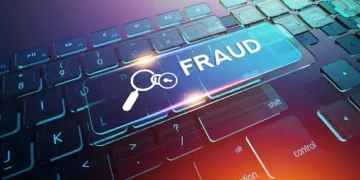Con Edison is alerting its customers to new scam tactics involving requests for bill payments via Cash App and Zelle. The company emphasizes that it does not use these platforms for bill payments and advises customers that such requests are fraudulent attempts to steal money.
In conjunction with the Federal Trade Commission’s National Consumer Protection Week, Con Edison, a member of Utilities United Against Scams, is intensifying its efforts to educate customers about the evolving strategies scammers use to deceive them.
Customers have reported receiving dubious calls from individuals claiming to represent Con Edison, demanding immediate payment for alleged overdue bills. These scammers often instruct customers to purchase pre-paid cards and provide the card numbers, enabling the scammers to siphon the funds.
Con Edison clarifies that it does not demand payment through pre-paid debit cards, MoneyGram, or similar transfer methods. Additionally, the company has halted service disconnections for non-payment during the ongoing health crisis. Customers should verify the authenticity of any payment requests by contacting Con Edison directly at 1-800-75-CONED.
Scammers have been known to manipulate caller ID displays to appear as though the call is from Con Edison. They also sometimes visit homes or businesses, posing as Con Edison employees and demanding payments for alleged overdue bills.
Customers are advised to request identification from anyone claiming to be a Con Edison representative visiting their premises. If doubts persist, they should contact Con Edison for confirmation.
Customers should also be wary of these specific scam tactics:
- Claims of a computer glitch that allegedly prevented recording of payments, followed by demands for immediate payment via a pre-paid card.
- False claims of owing a deposit for a smart meter and demands for immediate Bitcoin payment, usually targeting businesses. Con Edison does not require deposits for smart meters and does not accept Bitcoin payments.
- Attempts by impostors to gain entry into homes under the pretext of Con Edison-related matters, posing potential risks of theft or assault.
Con Edison’s website provides information on legitimate payment options and tips on avoiding scams. As a subsidiary of Consolidated Edison, Inc. [NYSE: ED], a leading energy company, Con Edison serves over three million customers in New York City and Westchester County, N.Y.
Stay informed with supply chain news on The Supply Chain Report. Free tools for international trade are at ADAMftd.com.
#ConEdison #UtilityScams #ScamAlert #ConsumerProtection #FTC #CashAppScam #ZelleScam #PrepaidCardScam #SmartMeterScam #BitcoinScam #EnergyFraud #ConEdisonScam #ConEdCustomerSupport #UtilitiesUnitedAgainstScams #ProtectYourself #ScamAwareness #IdentityVerification #FakeCalls #FakeEmployees #AvoidFraud #ScamPrevention #StaySafeOnline #ScamEducation #ConEdFraudPrevention #NewYorkEnergy #ScamWatch #UtilityScamAwareness















